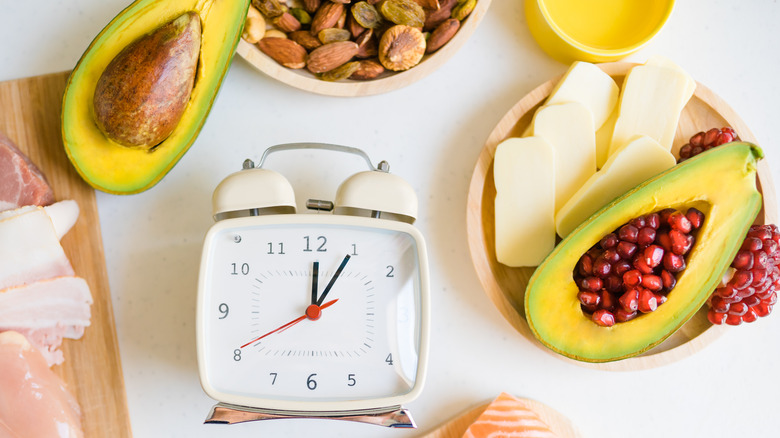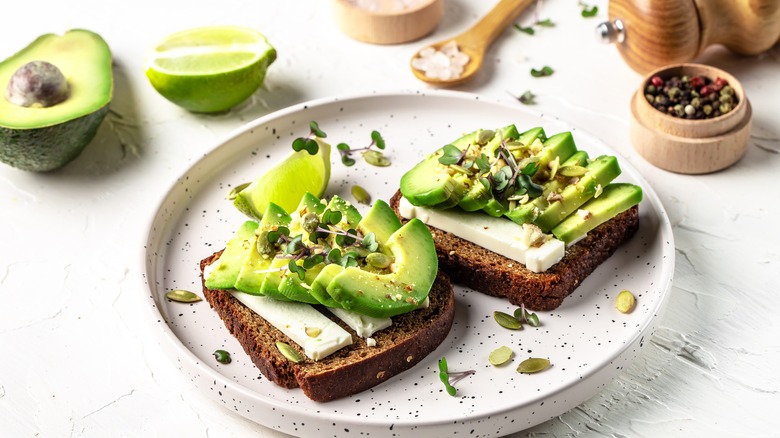Is It Bad To Eat Avocado At Night?
Are you daydreaming of creamy avocado toast before bed? Or perhaps you prefer eating a bowl of guacamole paired with chips as a late-night snack. Regardless of what avocado-eating method you prefer, it's well-known that avocados are healthy for you. They're a healthy source of fat, rich in nutrients like vitamin C, great for digestion, and support heart and eye health (per Medical News Today). Avocados also have antimicrobial properties and help protect the body from serious conditions (i.e. certain cancers, diabetes, obesity, cardiovascular disease, etc.), points out Medical News Today. With all these great health benefits it may seem like a great idea to eat avocado at night; but should you?
Turns out, this green fruit has the ability to keep you up at night because of an amino acid that arouses the brain, warns nutritionist Rob Hobson (per U.K. Express). "Aubergines, avocado, nuts, and soy sauce all contain an amino acid called tyramine. This amino acid may inhibit sleep as it causes the release of a hormone called norepinephrine that stimulates the brain," Hobson tells the U.K. Express. In other words, avocados could be the culprit behind tossing and turning mid-sleep.
Should you swear off avocados then?
If you're thinking about nixing your beloved late-night avocado toast, you may want to think twice. Hobson shares that you'll only want to limit or avoid eating avocados if it's difficult to sleep (per U.K. Express). Otherwise, you may be in the clear. "Unless you're downing a crate of avocados before hitting the hay, you shouldn't have to worry about avocados wrecking your sleep. In fact, avocados provide multiple benefits," points out registered dietitian nutritionist, Bonnie Taub-Dix to Food Network. Another nutritionist, Melissa Brunetti, points out that avocados also contain tryptophan and this could potentially counteract the norepinephrine released by tyramine (via My Recipes). That being said, if you're experiencing disrupted sleep, avocados are most likely not the culprit. There may be other nutritional factors at play.
This relationship between sleep and nutrition is an important one. Sleep deprivation can influence food choices and appetite, and overeating can worsen sleep quality, according to the National Sleep Foundation. Overeating, in particular, can increase the number of sleep disruptions and impact total sleep time. Too much sugar may also disrupt sleep, since it triggers cravings and lowers sleep quality, explains The Sleep Doctor.
If you're looking instead for sleep-promoting foods, you may want to consider tart cherries or kiwifruit. Just be sure to leave ample time between your bedtime snack and your actual bedtime. The National Sleep Foundation recommends not eating too soon before going to bed to help reduce disrupted sleep.


